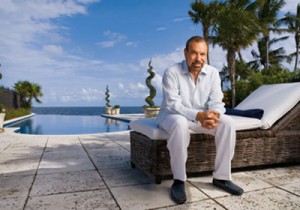Over 5,000 condos have been built during the housing boom by the Related Group of Florida. After finishing construction on the new residences, “condo king” Jorge Perez of Related Group is planning a comeback involving a number of new construction projects.
The Wall Street Journal explains Related Group’s strategy under Perez this way: “Related also plans to finance much of its new projects by unconventional means, requiring buyers to pay more than 70 percent of the cost of building their condos before closing, instead of just a 20 percent down payment on the property, as was typical in the past.”
Related’s target market in these new construction projects are Latin Americans who are extremely interested in owning a second home. Perez explains that this strategy is typical of how things work in other countries and Miami is home to many international buyers these days, according to the Wall Street Journal.
“Ninety percent of the deals in Latin America, where we expect almost all our buyers to come from, are done in this way,” Perez said in an interview on Thursday. “The name Related will become very important here. We will give the buyers our corporate guarantee that it will be completed on time.”
Related plans to ask buyers for a 20 percent down payment, another 20 percent at the start of construction and another 40 percent during the construction period in the new major projects that Perez intends on starting by winter 2011, as well as in three more large condo projects in Related’s pipeline. Condo buyers will be asked to put up 80 percent of the total commission of their future residence, otherwise Related will not consider you as a prospected customer.
Perez and his company have also formed a partnership with International Sales Group, a large brokerage with a network of real estate agents in South America. The logic behind this partnership is to recruit buyers for Related’s condo projects from the start of their journey to the Miami area. ISG says pre-sales have begun on the project, which is expected to cost $60 million, 20 to 30 percent of it paid for with cash from Perez’s pockets, and they are selling mostly to South Americans, according to the Wall Street Journal.

